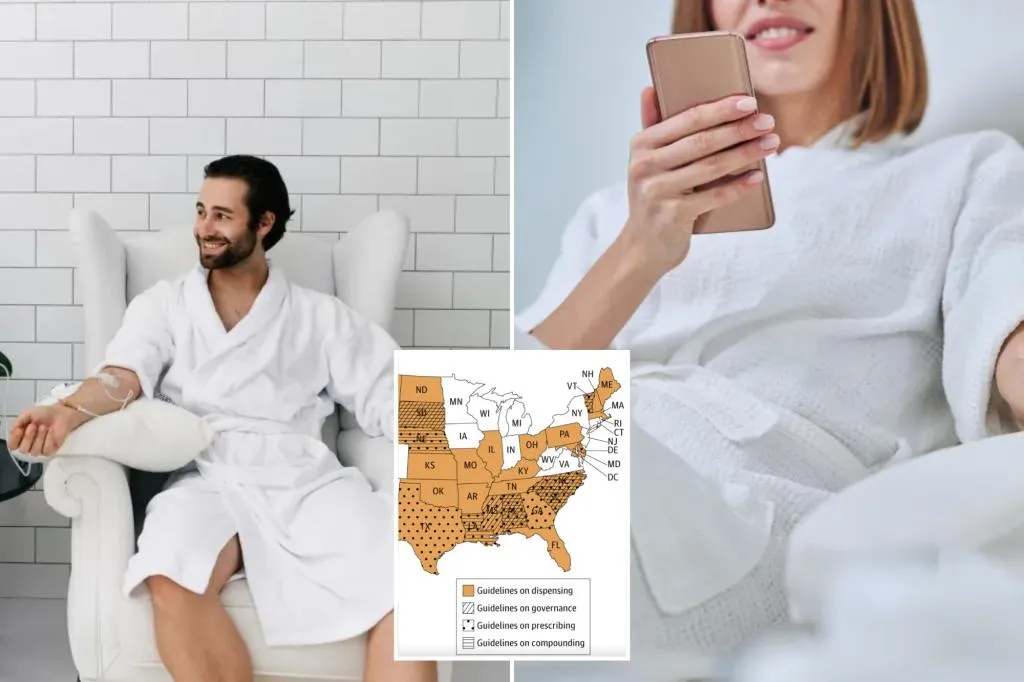One celeb-loved wellness treatment may not be healthy after all.
Vitamin infusions -- which deliver mixtures of vitamins, minerals and other supplements into the bloodstream through an IV -- are growing in popularity thanks to claims that they quickly boost energy, immunity and hydration.
IV hydration spas offering these pricey therapies are popping up across the US to meet the rising demand.
But a new Yale study warns that the billion-dollar IV hydration industry is highly unregulated and there's little medical evidence that these infusions actually help -- in fact, there have been reports of infections and contaminated products.
These businesses are operating "almost completely without evidence," Dr. Peter Lurie, president of the Center for Science in the Public Interest and co-author of the study, told NBC News. "As a result, there's a real danger to consumers."
Lurie's team analyzed 255 clinic websites and performed a "secret shopper" study of 87 randomly selected facilities to review everything from prescriber credentials and dispensing practices to product offerings and claims.
There are no federal standards for medical spas -- regulation is left to the states, paving the way for a patchwork of inconsistent rules.
"From facility website reviews and secret shopper calls, it was found that spa practices ... varied widely with respect to product offerings, product claims and staffing," the researchers wrote Monday in JAMA Internal Medicine.
"Claims most often suggested immune system support while providing minimal evidence."
NBC News noted that magnesium was often touted for headaches and muscle cramps and glutathione as a potential immune system booster, but there was little to no scientific evidence presented with these claims. Possible risks and side effects were often not mentioned either.
The study authors found that only 32 of 50 states have rules or policies about IV hydration services.
Just four states -- Alabama, North Carolina, South Carolina and Vermont -- have guidance addressing four main oversight categories: governance, prescriber credentials, dispensing practices and compounding practices.
In these states, a licensed health professional is prescribing the IVs; medications are being formulated in a facility licensed as a pharmacy by the state; registered nurses or other medical professionals are dispensing the therapy.
"Such widespread variation in state-level policies and IV hydration spa facility practices, particularly for an industry where the FDA typically defers to the states," the researchers wrote, "suggests that more stringent oversight may be necessary to protect public health, including standards for facility registration and reporting of product information, benefits and risks."
Alex Thiersch -- CEO of the American Med Spa Association, which supports medical aesthetic practitioners -- said some IV hydration clinic providers seem "surprised" to learn that they are practicing medicine.
"They thought, 'I'm just doing an IV. It's different. It's vitamins,' " Thiersch told NBC News.
"If you're putting a needle in someone's vein," he added, "that's 100% medical practice."
